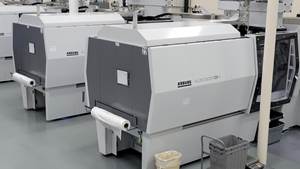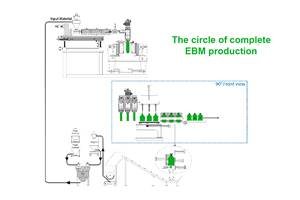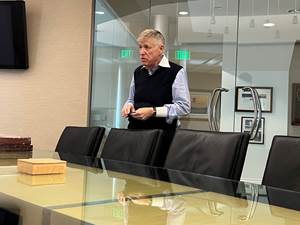Reshoring & Robotics Trends Bode Well for Electronics
As robots become more commonplace—in industry and consumer markets—electronics will continue to be a strong market for plastics processors.
In the U.S., consumer spending on electronics and electronics production has grown virtually exponentially since the early 1970s. At some point, the exponential growth will stop. But as robots become more commonplace—in industry and consumer markets—electronics will continue to be a strong market for plastics processors.
More to the point, more molders of tiny electronic parts will be using robots to increase productivity in their plants; and they’ll be making parts for the robots themselves as automation further penetrates day-to-day activities.
Spending on electronics has been growing more slowly of late. The month-over-month rate of change in electronics spending was 8% in January 2014—the slowest since August 2009. The annual rate of change has grown more slowly since February 2013. Electronics spending is at its slowest rate of annual growth since May 2010. The primary reason is that disposable income has increased more slowly since the summer of 2011.
On average, electronics spending tends to lead electronics production by about one year. With spending growing more slowly for the last year, it is likely that there will continue to be slower growth in electronics production in 2014. However, there are a number of signs that electronics production could remain relatively strong this year.
First, the electronics industry has been one of the most significantly impacted by reshoring. Apple, for example, is looking to manufacture more of its products in the U.S. And recently, the president of FoxConn, Apple’s major manufacturer in China, stated that the U.S. is a “must-go” market for expansion of the company’s manufacturing capabilities.
Second, virtually everything is being automated. Automation and robotics are playing an increasingly important role in American manufacturing, as skilled labor is hard to come by and increasing productivity is required to remain competitive with the rest of the world. Automation and robotics are even starting to gain traction outside of manufacturing.
Some examples include robots at McDonald’s to make hamburgers, and self-driving cars. There is even talk about remote-controlled or self-driving cargo ships. Basically, anything that can be routinized is open to robotics and automation. Therefore, there will be many new parts for robots to be manufactured.
Third, in the short term, Gardner Business Media’s Electronics Business Index is showing significant improvement. According to this index, the electronics industry has expanded significantly. In February, the industry expanded at its fastest rate since the survey began in December 2011.
The electronics industry seems to have broken out of its downward trend that began last July. New orders have grown for two months and are at their fastest rate of growth since July 2012. Despite some notable dips, production generally has grown faster since June 2012. Backlogs are increasing at their fastest rate in the history of the index, which should lead to higher capacity utilization and capital investment in the electronics industry. Finally, future business expectations are at their highest level since May 2012.
ABOUT THE AUTHOR
Steven Kline Jr. is part of the fourth-generation ownership team of Cincinnati-based Gardner Business Media, which is the publisher of Plastics Technology. He is currently the company’s director of market intelligence. Contact: (513) 527-8800; email: skline2@gardnerweb.com; blog: gardnerweb.com/economics/blog.
Related Content
Consistent Shots for Consistent Shots
An integral supplier in the effort to fast-track COVID-19 vaccine deployment, Retractable Technologies turned to Arburg and its PressurePilot technology to help deliver more than 500 million syringes during the pandemic.
Read MoreFor Extrusion and Injection-Blow Molders, Numerous Upgrades in Machines and Services
Uniloy is revising its machinery lines across the board and strengthening after-sales services in tooling maintenance, spare parts and tech service.
Read MoreGet Color Changes Right In Extrusion Blow Molding
Follow these best practices to minimize loss of time, material and labor during color changes in molding containers from bottles to jerrycans. The authors explore what this means for each step of the process, from raw-material infeed to handling and reprocessing tails and trim.
Read MoreUS Merchants Makes its Mark in Injection Molding
In less than a decade in injection molding, US Merchants has acquired hundreds of machines spread across facilities in California, Texas, Virginia and Arizona, with even more growth coming.
Read MoreRead Next
Lead the Conversation, Change the Conversation
Coverage of single-use plastics can be both misleading and demoralizing. Here are 10 tips for changing the perception of the plastics industry at your company and in your community.
Read MoreSee Recyclers Close the Loop on Trade Show Production Scrap at NPE2024
A collaboration between show organizer PLASTICS, recycler CPR and size reduction experts WEIMA and Conair recovered and recycled all production scrap at NPE2024.
Read MoreFor PLASTICS' CEO Seaholm, NPE to Shine Light on Sustainability Successes
With advocacy, communication and sustainability as three main pillars, Seaholm leads a trade association to NPE that ‘is more active today than we have ever been.’
Read More
.JPG;width=70;height=70;mode=crop)






















